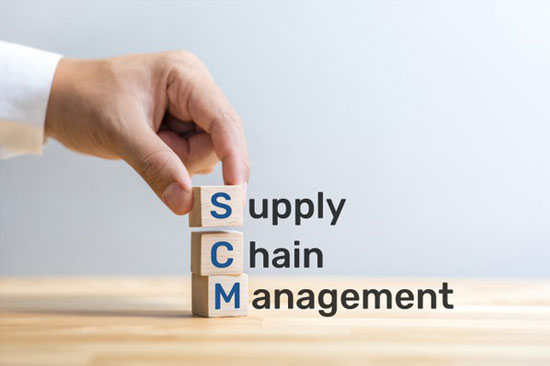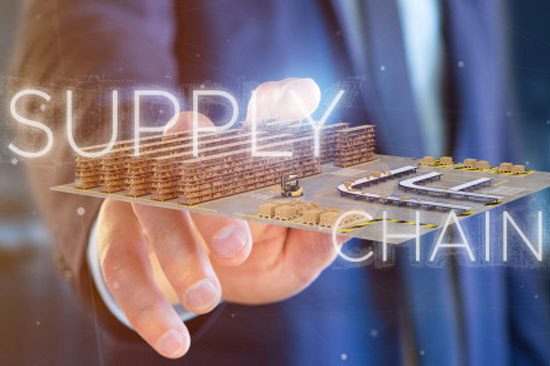Supply Chain Management ERP
Supply chain management is one of the extremely important parts of business processes. An effective way to manage supply chain can help the business to stay on the track. Eliminating the delays in supply chain management can prove crucial in the improvement of the business processes and activities. In order to understand the supply chain management and ERP for supply chain management, it is important to understand supply chain and how it can be managed efficiently.
What is Supply Chain?
A network between companies and its suppliers to product and distribute product to the final buyer is called as Supply Chain. This network includes different entities, activities, people, information, and resources. The supply chain also includes the steps in getting product from original state to the final customer or buyer. Many businesses develop supply chain in order to manage business efficiently and remain in competition of business landscape. Supply chain includes various steps like transforming raw material into finished products, transporting those products, and distributing them to end-buyer.
What is Supply Chain Management?
Supply Chain Management or SCM is an active part of the business for managing the supply chain and all the activities associated with it to maximize customer value and achieve substantial competitive advantage. Supply chain management helps the businesses or industries to procure raw material and deliver the final product to the end customer. Supply chain management is not limited to one industry but it is a complete chain which can include several industries right from handling or harvesting raw material to distribution channels that delivers the final products to the customers. Supply Chain Management is crucial part of ERP software for manufacturing industry.
Supply chain management is not longer associated with what is going on in industry’s four walls, rather evolved into complete entire chain. Supply chain management activities cover everything from product development, sourcing, production, distribution, logistics, and all the information system needed to coordinate these activities.
There are two flows of SCM or Supple Chain Management namely Physical Flow and Information Flow. Physical flow includes activities such as production, movement, transformation, and storage of goods and material. These are visible part of supply chain management. The Information flow of Supply Chain Management includes various supply chain partners to co-ordinate for longer term plans.
Which are areas where Supply Chain Management is used?
Supply chain management is usually used in every revenue generation industry. Supply chain mostly comprises manufacturing and distribution, so the industry where manufacturing and distribution is crucial supply chain management is important for that industry. Supply chain management has 7 primary functional areas namely Purchasing, Manufacturing, Inventory Management, Demand Planning, Warehousing, Transportation, and Customer Service.
1. Purchasing
Acquiring goods or services to accomplish the goals of organization is purchasing. Maintaining the quality of productions, minimizing the cash tied up in inventory, maintaining the flow of inputs to ensure flow of output, and establish a good competitive position of organization are primary goals of purchasing.
2. Manufacturing
Manufacturing is the process of production using labor and machines, tools, chemicals, formulation, and biological processing. Manufacturing can refer to human activity or high tech machine and equipment solution commonly applied for industrial production. Manufacturing transforms raw material into finished goods or products.
3. Inventory Management
Inventory management involves maintaining and managing the optimum number or amount of each inventory item. Inventory management is responsible uninterrupted production, sales, and customer service at minimum cost.
4. Demand Planning
Demand planning is the process of forecasting customer demands to drive the execution of such demands by managing corporate supply chain and business activities. This forecasting can be an educated guess or analysis of stats, history, and various sales reports. These reports contain historical sales data from current and previous markets.
5. Warehousing
Warehousing process is the process of storing the finished goods or products for distribution. This function includes receipt, identification, inspection, verification, putting away, retrieval for issues etc.
6. Transportation
Transportation is the movement of goods or products from one location to another. Modes of transportation include road, rail, air, water, space, and cable. Transport is important because it connects various businesses to achieve simultaneous goals.
7. Customer Service
Customer service ensures the complete satisfaction with products or services. Customer service takes place while making a sale to the customer or returning an item from the customer.
ERP for Supply Chain Management
Supply Chain Management is an integral part of ERP software. Supply Chain Management ERP allows the business the ability to gain complete visibility in the business processes and also increase efficiency, speed, and overall customer satisfaction. Businesses need to interact with numerous suppliers, partners, and distributors in order to procure raw material. Businesses also need the resources for manufacturing on products and goods. Lighthouse Info Systems provides excellent Supply Chain Management software solution to eliminate all the obstacle and hurdles that are required for smooth supply chain management. ERP software is also Quality Management software in its own terms.
Lighthouse ERP helps the businesses in managing purchasing, production, distribution, transportation, and maintaining customer service. Our software creates a connected eco-system of all the suppliers and distributors at single place to create a chain for managing supply and demand of the products.
Lighthouse ERP focuses on various supply chain activities to boost plant productivity, improve product quality, and cut down manufacturing costs of the product. Our ERP software streamlines the path for products to go through from supplier to warehouse and finally reaching the end customer.
Conclusion
Supply Chain Management helps the business to reduce the entire stress on one part of business activity and focuses on uniting all the business activities simultaneously for better efficiency in the business. Lighthouse ERP for Production Planning and Supply Chain Management is an exemplary solution in order to resolve all the problems that occur during Supply Chain Management or SCM.






















